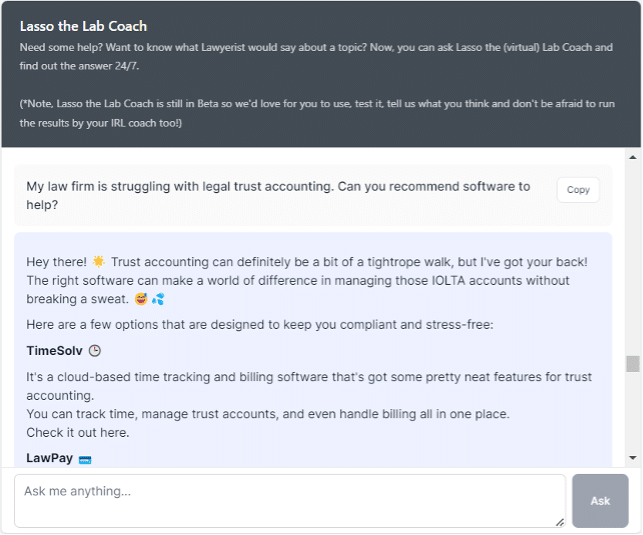Dan Wade Brings Strategic Communication Expertise to Lawyerist

Lawyerist is excited to welcome Dan Wade, Marketing Lead, to the team. Dan is an expert at strategic communications and brings seven years of marketing experience with him. He will spearhead efforts to increase brand awareness for Lawyerist and Affinity Consulting, ensuring the right message reaches the right audience.
Dan resides in St. Paul, Minnesota, where he lives with his wife, daughter, and two cats (Avery and “the boy”). He’s a sports fan to his core and is even a community owner of Minnesota Aurora FC, a local soccer club.
“We are excited and lucky to have Dan join the team,” said Lawyerist CEO Stephanie Everett. “In addition to being a great marketing mind, he has a journalism and sports data background, and loves craft beer—all the makings of an interesting team member!”
Dan Brings Small Market Experience
Dan knows how important marketing is for business growth. In multiple stints at startups, he led efforts to build marketing teams and strategies. As he joins a larger team, Dan expects those experiences to help him tackle new challenges.
“At its heart, marketing is prioritization,” said Wade. “The thing marketers need, above all else, is empathy. It allows you to really understand your customer’s problem at a deep level. And I think my background at startups gives me some affinity with Lawyerist’s audience.”
Dan’s Plan for Directed Messaging
As a part of both Lawyerist and Affinity, Dan will focus on finding and reaching key audiences for each brand. He recognizes how difficult it can be to reach lawyers given their busy schedules. To that end, Dan hopes to add urgency to communications, so that business investment and enhancement stay at the top of their minds.
Sometimes process optimizations can be forgotten, neglected, or pushed down the road, but it’s important for law firms to be conscious of ways to improve. Dan emphasized the importance of creating actionable messages for potential clients. “Once you get people to understand that the future can be better than the present, everything gets easier. Marketing, sales, and implementation work together to create a vision you and the client share,” Wade said. Adding, “Everyone is excited for the future and how it will change their business.”
Welcome to the team, Dan! If you want to work with Dan and the rest of our amazing folks, check out current openings with Lawyerist or Affinity.
The post Dan Wade Brings Strategic Communication Expertise to Lawyerist appeared first on Lawyerist.




